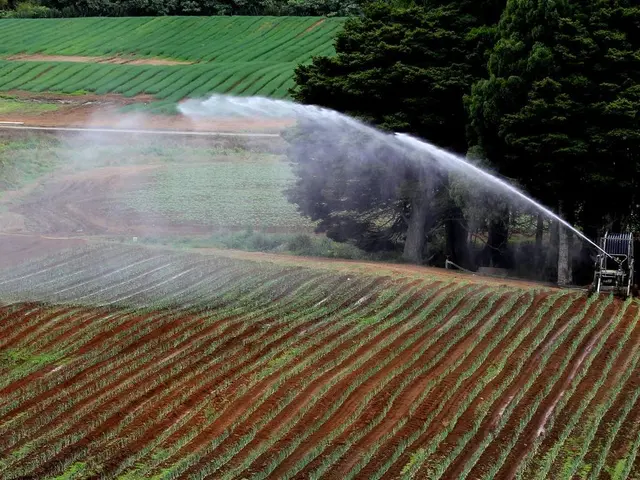Impact Assessment: Trump's Tariffs Projected to Reduce Global CO2 Emissions by a Minimal 0.3% in 2025
In a recent analysis, Carbon Brief has estimated that Trump's tariffs could only reduce global CO2 emissions by about 0.3-0.4% in 2025, with a slightly higher but still modest effect projected for 2026 (0.5-0.8%).
The tariffs, which include a 10% universal levy on all imported goods and additional tariffs on certain countries, have been a source of economic disruption and have slowed investments in clean energy. This is a significant concern as the US accounts for roughly 20% of historical global emissions, and the stalling of $27.6 billion worth of clean energy projects in the US has negatively impacted global decarbonization efforts.
The economic slowdown linked to the tariffs is not the only factor contributing to this limited impact. The Trump administration's policies, such as the rollback of regulations like vehicle emission standards and the EPA’s "endangerment finding," have weakened regulatory frameworks designed to reduce emissions. This counteracts any small gains achieved by the economic slowdown linked to the tariffs.
Some argue that the tariffs might reduce emissions by dampening economic activity, but this effect is small and comes at the cost of delayed clean energy adoption and regulatory uncertainty, which could raise emissions in the longer term.
The International Energy Agency (IEA) has revised down its forecasts for global oil demand growth in 2025 by some 350,000 barrels of oil per day, but the IEA's forecasts for global coal demand in 2025 are broadly unchanged since the start of the year. This suggests that the impact of Trump's tariffs on global emissions may be smaller than initially expected.
The analysis only considers CO2 emissions from fossil fuels and cement production, and does not take into account the impact of the tariffs on other greenhouse gas emissions or on the broader economy.
UK climate envoy Rachel Kyte stated that uncertainty created by Trump's tariffs is likely to slow down clean-energy investment. The "one big beautiful bill" passed by Trump in July 2025 rollbacks a large number of environmental policies and protections, further hindering progress on climate policy.
In conclusion, Trump’s tariffs have not been effective tools for meaningful global carbon reduction. Instead, they have disrupted clean energy investments and rolled back environmental regulations, thereby slowing progress on climate policy rather than advancing it. The medium- to long-term impact of Trump's trade wars is expected to be negative for climate action.
- The slowdown in clean energy investments as a result of Trump's tariffs could hinder the energy transition towards sustainability, impacting the achievement of Sustainable Development Goal (SDG) 7: Affordable and Clean Energy.
- The weather patterns might be affected in the long term due to the delayed clean energy adoption and the weakening of regulatory frameworks designed to reduce emissions, as a result of Trump's tariffs and policies.
- Sporting events, reliant on clean energy for their operations, could face energy supply challenges, given the slowdown in clean energy investments and the development of renewable energy sources, as a consequence of Trump's tariffs.








